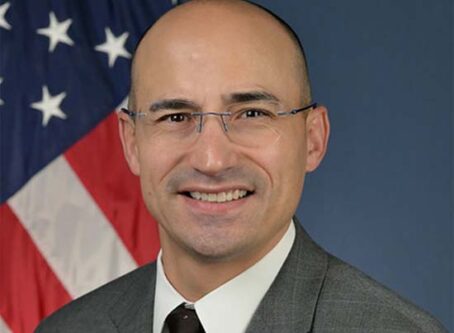FMCSA plans public listening session on safety fitness determination
Later this month, the Federal Motor Carrier Safety Administration plans to host an in-person listening session regarding safety fitness determinations for motor carriers.
The public listening session will be from 1 to 2:30 p.m. Central on June 29 at the Texas Trucking Show in Houston. FMCSA announced the event in a notice that is scheduled to be published in the Federal Register on Friday, June 7.
In addition to the in-person listening session at the NRG Center in Houston, FMCSA said it plans to announce two online-only listening sessions about safety fitness determinations in June and July.
The sessions will focus on the development of an updated methodology to determine when a motor carrier is not fit to operate commercial motor vehicles.
“Specifically, the agency would like to hear from members of the public on issues of concern relating to safety fitness determination, including, for example, the three-tiered rating system (Satisfactory, Unsatisfactory, Conditional) versus changing to a proposed single rating only when a carrier is found to be unfit,” FMCSA wrote in the notice.
In addition, the agency plans to discuss:
- Utilizing inspection data and FMCSA’s Safety Measurement System
- Incorporating driver behavior into safety fitness determination ratings
- Revising the list of safety violations used to calculate the rating
- Adjusting the weights allocated to particular violations, including increasing the weight for unsafe driving violations
The listening session in Houston is open to the public, and there will be an opportunity for individuals to comment. Attendees do not need to pre-register for the listening session, but registration is required for the Texas Truck Show. Instructions on how to register for FMCSA’s online listening sessions on safety fitness determinations will be announced soon.
Potential changes
Last August, FMCSA published an advance notice of proposed rulemaking that asked for feedback on whether the process to determine a motor carrier’s safety fitness needs to be revised.
In formal comments submitted in November, the Owner-Operator Independent Drivers Association told the agency that the current system is ineffective.
“The FMCSA safety fitness determination process has a direct effect on motor carriers’ ability to stay in business,” OOIDA wrote in its comments. “Historically, the safety fitness determination structure has not been proven as a reliable methodology to properly determine a motor carrier’s fitness to operate. Most of the (program’s) shortcomings relate to the inaccuracy and inconsistency of the data that is collected and analyzed during a safety investigation.”
In January, FMCSA reopened the comment period to give the public an opportunity to comment on reports that could inform the rulemaking, such as data involving in-vehicle monitoring systems.
OOIDA told the agency that technology shouldn’t be allowed to bolster a motor carrier’s rating.
“(The) safety fitness determination should not consider motor carriers’ adoption and use of safety technologies in a carrier’s rating,” OOIDA wrote. “The mere adoption and use of safety technologies does not ensure better safety performance. We believe rewarding carriers that simply adopt safety technologies without improving actual safety performance would only benefit motor carriers who can afford costly new technologies.” LL









